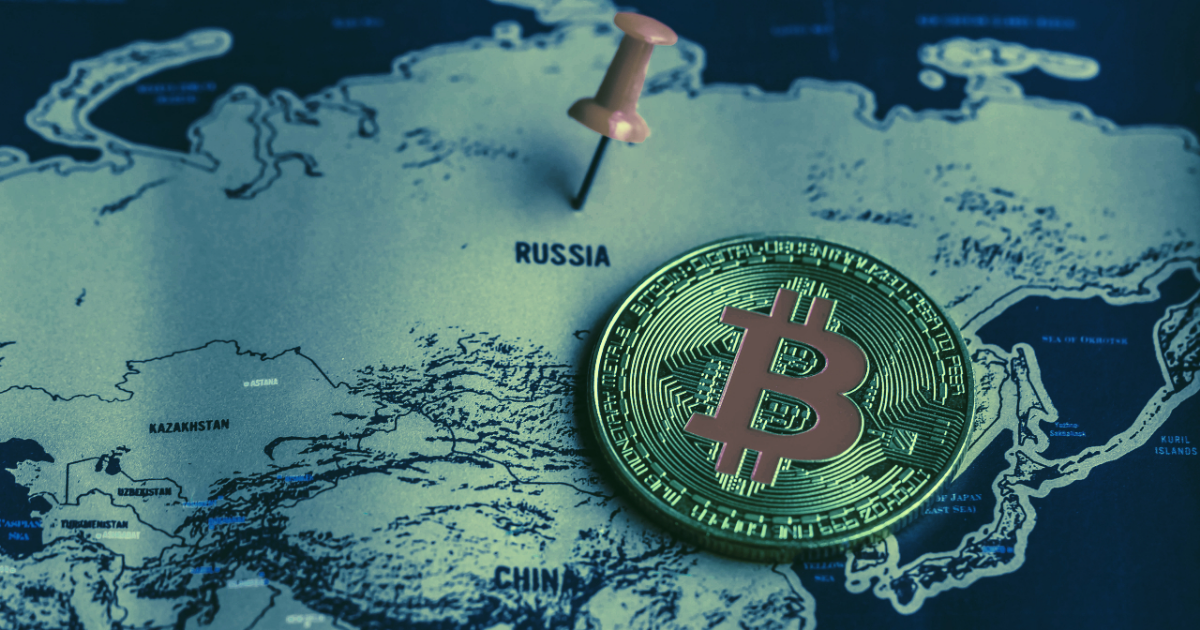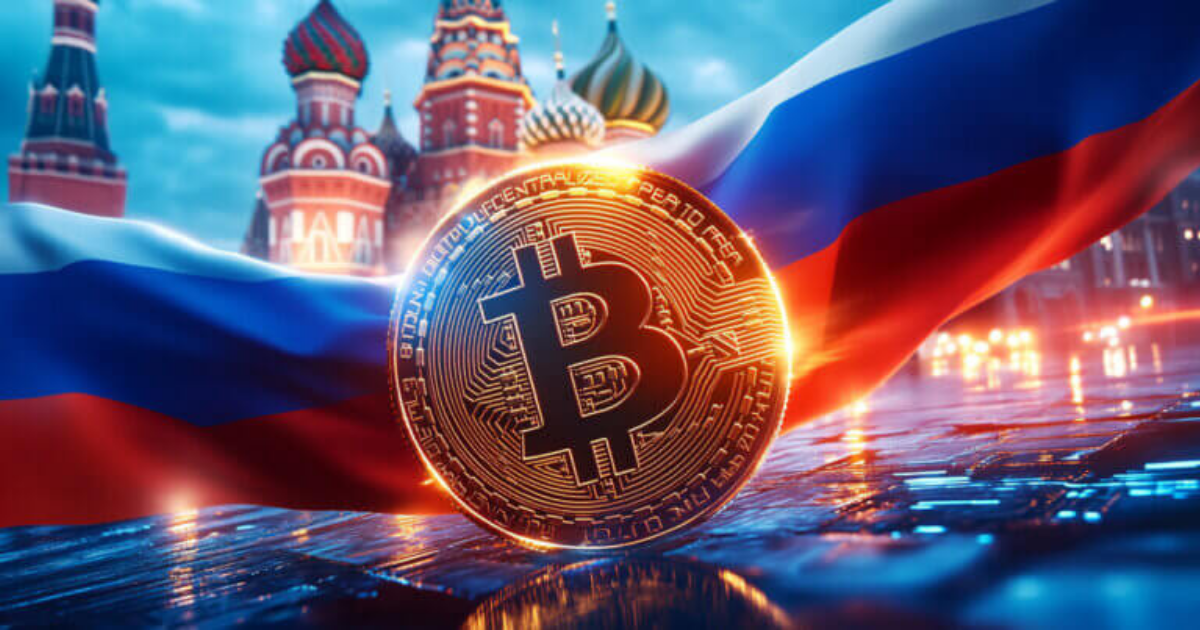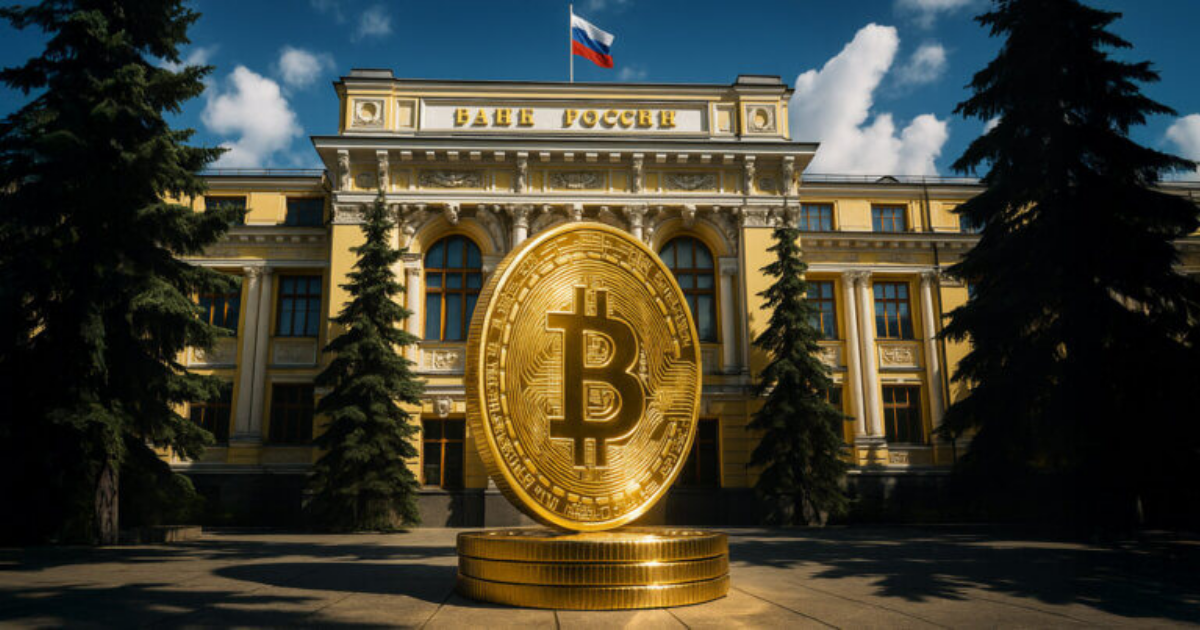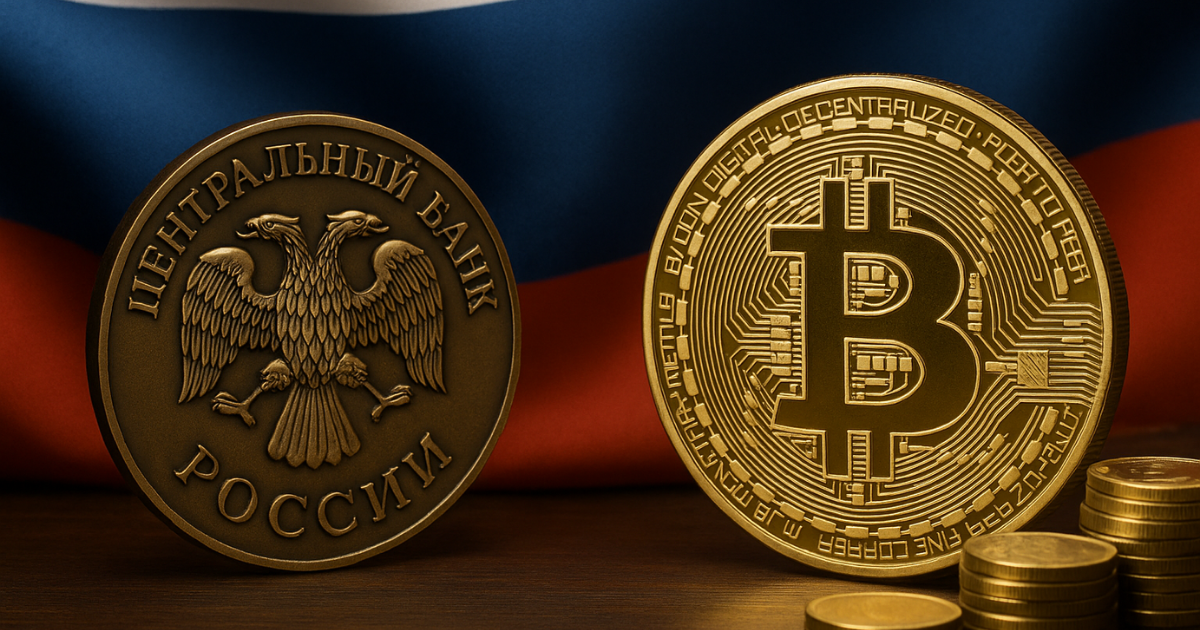The approach toward digital assets in Russia changed on May 28 when the Bank of Russia approved crypto derivatives for qualified investors. In a short time, T-Bank and other big Russian banks placed Bitcoin-linked investment products on platforms recommended by the state, mainly for accredited investors.
Key Takeaways:
- Regulation Only for Investors: Russia allows crypto derivatives to be traded by accredited individuals (above), but bitcoin delivery through banks is not allowed.
- Strong Investment Boost: In February 2020, more Russian cryptocurrency investments arrived than in any other period over the past six months, with $81.5 billion entering the market.
- Russian T-Bank moved swiftly after the state’s approval, launching Bitcoin-linked offerings the very same day.
- According to industry experts, the true amount of crypto in Russia is likely higher than the government’s official $9.2 billion figure
Strict Conditions Apply to New Crypto Access

On the other hand, the central bank put key limitations on these platforms. No real cryptocurrency will be given to clients by banks. Instead, these companies let you track crypto prices by using financial tools (e.g., crypto derivatives).
With this system, investors get digital currency exposure, but comply with all necessary regulations. The Bank of Russia stressed that all such products should follow the rules. Any time a financial institution offers these services, it must obey certain guidelines.
Russian Crypto Holdings Surge Dramatically

Recent months have also seen Russian crypto investments climbing significantly. The data from the central bank revealed crypto inflows grew by 51% during Q1 2025. The time between March and June saw Russian investors put 7.3 trillion rubles ($81.5 billion) into digital assets.
Experts project that Russians are currently holding $9.2 billion in funds on centralized exchanges. About 62% of the top cryptocurrency holdings belong to Bitcoin. Just over 22% of investors hold Ethereum, while stablecoins combined account for around 16% of the total.
T-Bank Leads Market with Smart Asset Launch

T-Bank was the first company to make the most of new regulations. The bank allows customers to buy “smart assets” connected to Bitcoin prices on Atomyze. All transactions done through this service are fully controlled by the regulatory standards set by the government.
Banks explain these products as safer choices than dealing directly with cryptocurrencies. There are ways for investors to own Bitcoin without signing up for exchange accounts or doing digital wallet management. Investors used to traditional assets are attracted to the simple method this offers.
Direct Investment Still Faces Official Resistance

Even after these changes, Russian officials remain wary of Russians owning and holding crypto directly. Both companies and individuals are being urged by the Bank of Russia not to invest in cryptocurrencies. Experts are concerned about the volatility and difficulties brought by regulating actual crypto ownership.
At the same time, talks persist about providing qualified investors with access to experimental trading programs. These possible programs might make direct trading of Bitcoin available for users in particular situations. We are unsure when these initiatives will start.
Market Reality Exceeds Official Estimates

Many in the blockchain industry believe the Russian government is underestimating how many cryptocurrencies its citizens own. Exved exchange points out Sergey Mendeleev estimates the number is much greater than reported. He mentions rich individuals alone could be holding plenty of digital currency in their personal wallets.
The difference points out the tough task of following partially centralized cryptocurrency tracking. Self-custody wallets and decentralized exchanges that remain outside government limits are both popular among Russians. The actual amount of trading in some markets is much greater than what’s reported.
Conclusion

Russia is developing its approach to digital assets by trying to weigh economic gains with the need to regulate structured products, such as crypto derivatives. The way Canada is doing it could show other nations the right path. More banks are expected to launch bitcoin-related products, a trend started by T-Bank. How well the first initiatives work will help direct future regulations, with greater investor desire possibly advancing opening up the industry.











